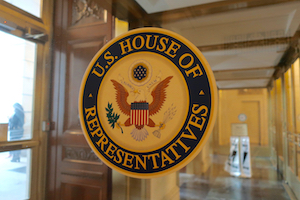 Shortly before recessing for the mid-term elections, the House of Representatives approved legislation opposed by the American Retirement Association that would prohibit arbitration and discretionary clauses in employer-sponsored benefit plans under the Employee Retirement Income Security Act (ERISA).
Shortly before recessing for the mid-term elections, the House of Representatives approved legislation opposed by the American Retirement Association that would prohibit arbitration and discretionary clauses in employer-sponsored benefit plans under the Employee Retirement Income Security Act (ERISA).
The proposed changes were passed as part of the Mental Health Matters Act (H.R. 7780), which the House approved Sept. 29 by a near party-line vote of 220-205, with Rep. Brian Fitzpatrick (PA) as the lone Republican to vote in favor of the legislation. The arbitration provisions were introduced May 12 by Rep. Mark DeSaulnier (D-CA) in the Employee and Retiree Access to Justice Act (H.R. 7740), which was later folded into H.R. 7780.
H.R. 7780 now moves to the U.S. Senate, where Sen. Tina Smith (D-MN) introduced companion legislation (S. 4219).
ARA Opposition
The ARA is strongly opposed to the legislation and had argued in a May 17 letter (when the legislation was still in committee) that the bill would increase costs for small businesses to operate retirement plans and would lead to more frivolous lawsuits against plan sponsors.
“This change will simply result in more retirement plan administrative costs and litigation that will benefit the plaintiffs’ bar but not every day working Americans who are saving for a secure retirement. This legislation only offers more deterrents to maintaining retirement plans and should be opposed,” the ARA argued.
Part of the reasoning is that many—if not most—retirement plans include provisions requiring employees and plan participants to arbitrate any disagreements they may have with the employer or plan fiduciaries before they could take a dispute to court to seek resolution. Arbitration clauses are important tools for protecting participants and benefit plans from the costs of litigation and the fees paid to plaintiffs’ attorneys. Unlike litigation, which takes years to resolve, arbitration can facilitate the timely receipt of benefits owed to participants.
Moreover, most ERISA benefit plans adopt discretionary clauses which grant the plan administrator discretionary authority to interpret the plan documents and resolve disputes under DOL regulations. This ability to delegate authority to the plan administrator is born out of ERISA’s goal of encouraging employers to sponsor and implement benefit plans. Further, ERISA’s claims process is meant to be expedited. But by prohibiting discretionary clauses in ERISA plans, any benefit determinations made by the plan would be far more likely to be challenged in court.
What the Bill Does
In general, the legislation would deem pre-dispute forced arbitration clauses, class action waivers and representation waivers unenforceable for ERISA Section 502 claims and common law claims relating to a plan or benefits under a plan, when brought by or on behalf of a plan participant or beneficiary.
It also would deem post-dispute forced arbitration clauses, class action waivers and representation waivers unenforceable unless certain conditions are met, including that “a participant or beneficiary understands the agreement and has a fair opportunity to consider it without the threat of retaliation for failure to agree.” In this case, the legislation specifies that certain notice and consent requirements must be met and that there be a 45-day waiting period.
Moreover, plan provisions which give discretionary authority in benefit determinations or plan interpretation (or would otherwise deny de novo review of benefit denial claims) would be deemed unenforceable. The bill also would prohibit discretionary clauses in plans.
The legislation would also prohibit plan sponsors from including mandatory, forced arbitration clauses, class action waivers and representation waivers in ERISA-covered employee benefit plans. As such, the legislation would prohibit pre-dispute forced arbitration clauses as a condition to participate in the plan. Post-dispute forced arbitration clauses, class action waivers and representation waivers would also be prohibited unless certain conditions are met.
Any dispute concerning whether an arbitration clause is enforceable would be determined by a court, rather than an arbitrator, regardless of whether any contractual provision purports to delegate such determinations to the arbitrator, the bill further stipulates. Collectively bargained multiemployer plans maintained by labor unions and more than one contributing employer are exempted from the legislation’s prohibition.
Finally, the legislation would apply to disputes that arise after the date of enactment, even if an existing agreement is in place. It also would give plans an additional year beyond the current plan year to update plan documents, provided the plan administrators otherwise conduct themselves in accordance with the bill’s provisions starting on the date of enactment.

